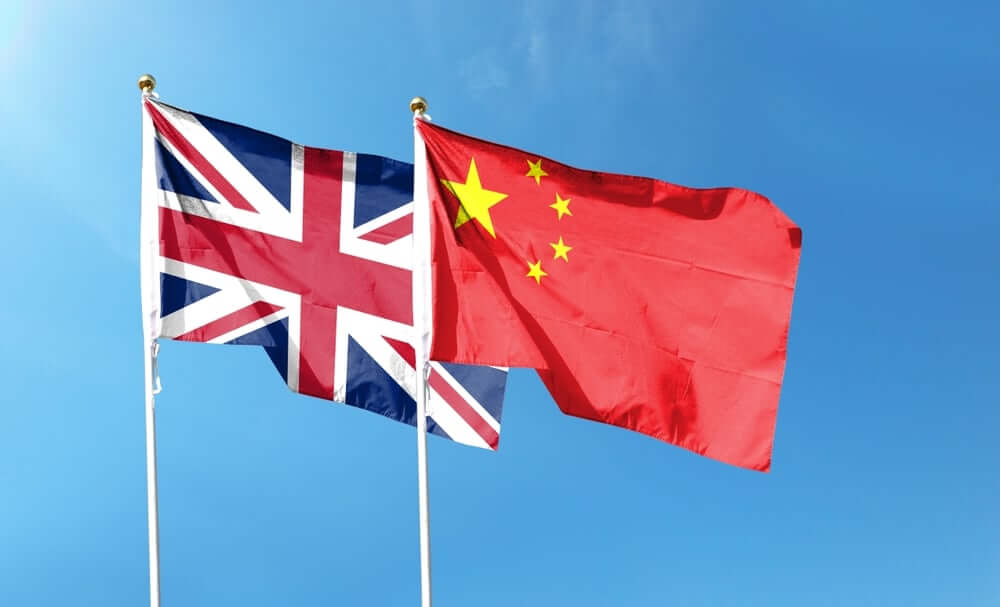Economic imperialism represents a form of imperialism. In order to approach this concept we will first start with the explanation of imperialism as a process of control or domination of an entity over other populations or territories.
What is imperialism?
Imperialism refers to the notion of Empire, a form of political organization born in Antiquity.
Historically, imperialism refers in particular to the policy of military expansion of European states through colonial conquest.
The notion of imperialism was in fact developed by the economist John Atkinson Hobson who, in his book Imperialism. A Study (1902) criticized the British version. This imperialism is no longer based on territorial continuity, the difference between metropolis and colonies being accentuated.
But several phases of imperialism can be distinguished. After the great discoveries of the 16th century, we can remember the expansion of the 1880s leading to the Berlin Conference of 1885 which organized territorial claims in Africa, or the attribution of mandates by the League of Nations to distribute the territories of the Empire. Ottoman defeated at the end of the First World War.
Often justified in the name of a civilizing mission and drivers of a certain universalization of values, empires in fact lead policies of predation, exploitation of resources and are a tool of prestige on the international scene. As such, they were fought by nationalisms leading to independence.
Today, imperialism has a pejorative connotation at the same time as it seems to have been diluted: it is no longer just territorial, but would designate hegemony in the fields of economy, technology or culture.
What is economic imperialism?


Economic imperialism represents the exertion of economic power in order to control countries, people and regions. It takes many forms like controlling natural resources, investments and trade manipulation, exploitation of markets and labor force. Economic imperialism also refers to use of financial assistance like loans and economic aid as a means of control and influence.
How Does it Work?
Economic imperialism involves a foreign power dominating the economy of another country or territory to extract resources, markets, and profits. This domination can be achieved through various means:
- Establishing settlements and administrative control, imposing tariffs and trade regulations, controlling resources and labor, and extracting wealth.
- Exerting economic influence via trade agreements, investments, without needing formal colonization.
- Dominating important locations like ports and transportation routes for economic advantage.
- Utilizing a country’s resources and labor for the foreign power’s benefit.
- Gaining control over a country’s markets through ownership or control of key industries or by manipulating trade agreements and tariffs.
Goal of Economic Imperialism
The goal of economic imperialism can be different depending on the historical context, actors involved, and the methods applied. In general, the goal is to control natural resources, labor, markets and people in other countries or regions. And this is done for a range of reasons.
The first would be access to natural resources like minerals, oil, agricultural land or water in order to provide supplies for their own countries/ economies.
Also, countries may look to dominate and control other markets to sell their own products, goods and services. In that way they increase their exports.
Furthermore, investment opportunities, strategic advantages and political domination are some of the reasons. Gaining strategic advantage such as naval ports, military bases and access to waterways.
Finally, there are ideological reasons to control people and countries and the expense of people living in those countries. It;s of a big concern today given global economic power imbalance, growing inequality between developed and developing countries.
Informal Formal Vs. Formal Economic Imperialism


Formal and informal economic imperialism are two different ways of imperial power exertion over other countries’ economies.
Formal economic imperialism is a direct way of controlling territory or a colony using the establishment of an economic and political system. It generally involves the colonization of a country, control of resources, labor, and imposition of trade regulations and tariffs. Typical example of formal economic imperialism during the 19th century.
Informal economic imperialism involves indirect control over the economy of a country by the means of investment and trade agreements. There is no formal colonization in place in this case. Typical examples are the economic influence of the US in Latin America during the 19th and 20th century, or the influence of China in some African countries.
Examples of Economic Imperialism Opium Wars
The British and Chinese fought two wars in the mid-19th century, known as the Opium Wars, over the opium trade. The First Opium War happened between 1839 and 1842, and the Second Opium War occurred from 1856 to 1860. China wanted to stop British merchants from trading opium, which led to these wars.
For a long time, British merchants, mainly from the British East India Company, sold opium grown in India to China, where many people wanted it. The Chinese government saw this trade as harmful and tried to stop it. In 1839, after China seized and destroyed a big amount of opium from the British, the First Opium War started. The British won using their powerful navy and made China sign the Treaty of Nanking in 1842. This treaty opened several Chinese ports to British trade, forced China to give Hong Kong to Britain, and made China pay the British.
Even after the first war, the opium trade didn’t stop, and China kept trying to end it. These efforts led to the Second Opium War in 1856. This time, Britain and France fought China together and won, making China sign the Treaty of Tientsin in 1858. This treaty opened more Chinese ports to foreign trade, made the opium trade legal, and required China to pay Britain and France.
The causes
The Opium Wars started because Britain wanted to sell opium to China to fix its trade deficit with the country. China tried to stop this because opium was addicting and harmful. The second war also involved disputes over foreign diplomats and traders’ rights in China.
The effects of opium wars


The wars had big effects. They forced China to open up to foreign trade, give Hong Kong to Britain, and allow foreign diplomats and traders more freedom in China. These changes made China weaker and more open to foreign control. The opium trade also hurt Chinese society a lot, causing addiction and crime to go up. These wars helped Western powers dominate China economically and politically for many years.
Treaty of Nanjing (1842)
The Treaty of Nanjing in 1842 ended the First Opium War between the British and the Chinese. The British won and made China agree to several demands. This treaty opened five Chinese ports to British trade, including Shanghai and Guangzhou. China also had to give Hong Kong to Britain and pay a large sum of money to them. This agreement marked the start of the era where China had to give special privileges to European powers.
Treaty of Tientsin (1860)
The Treaty of Tientsin in 1860 ended the Second Opium War. This time, both Britain and France fought against China and won. The treaty made China legalize the opium trade, open more ports to foreign trade, and allow foreigners to travel and do business in China more freely. China also had to pay a large amount of money to Britain and France and let them have embassies in Beijing. This treaty further weakened China’s control over its own affairs and increased foreign influence.
Port of Argentina and Foreign Investment Debt Trap
During the second half of the 19th century, Great Britain exercised exclusively economic constraint on Asia and the Americas. Take the example of Argentina. Its commercial links with Great Britain were very important. This represented more than 50% of Argentine trade, while Argentina only contributed 10% to British trade. Britain was also the largest investor in Argentina. Argentina tried to diversify its partners and reduce its dependence by seeking capital in New York, Paris and Berlin, but without success. Britain could say to the Argentine government: “Either you adopt this policy or we strangle your economy.” » In 1876, Great Britain had indeed applied terrible sanctions to Peru, thus persuading Argentina to become a client state of the British empire. Today, these measures are referred to as “structural adjustment”: they are strictly economic interventions that international institutions, dominated by the United States, exercise on peripheral economies.
This is a borderline case of imperialism. The peripheral state is “free” to refuse, but the dissuasive force is formidable with the ban on foreign investments, and sometimes even foreign trade. Sanctions can be applied, but without the intervention of military force.
- SEO Powered Content & PR Distribution. Get Amplified Today.
- PlatoData.Network Vertical Generative Ai. Empower Yourself. Access Here.
- PlatoAiStream. Web3 Intelligence. Knowledge Amplified. Access Here.
- PlatoESG. Carbon, CleanTech, Energy, Environment, Solar, Waste Management. Access Here.
- PlatoHealth. Biotech and Clinical Trials Intelligence. Access Here.
- Source: https://www.financebrokerage.com/what-is-economic-imperialism/
- :has
- :is
- :where
- $UP
- 1
- 14
- 16th
- 19th
- 2%
- 20th
- 24
- 4
- 5
- 6
- 7
- 8
- 9
- a
- access
- achieved
- actors
- addiction
- administrative
- adopt
- ADvantage
- advantages
- Affairs
- africa
- African
- After
- against
- agree
- Agreement
- agreements
- Agricultural
- Aid
- allow
- also
- america
- Americas
- amount
- an
- and
- Another
- applied
- approach
- ARE
- Argentina
- Argentine
- AS
- asia
- Assistance
- At
- Ban
- based
- BE
- because
- become
- been
- Beijing
- being
- benefit
- berlin
- between
- Big
- book
- born
- both
- britain
- British
- business
- but
- by
- CAN
- capital
- case
- causing
- Century
- certain
- Changes
- China
- Chinas
- chinese
- claims
- client
- Colony
- commercial
- company
- comprehensive
- concept
- Concern
- Conference
- constraint
- content
- context
- continuity
- contributed
- control
- controlling
- could
- countries
- country
- country’s
- Crime
- criticized
- Culture
- data
- Debt
- DEFICIT
- demands
- dependence
- Depending
- destroyed
- developed
- developing
- Developing Countries
- difference
- different
- diluted
- diplomats
- direct
- disputes
- Distinguished
- distribute
- diversify
- do
- does
- dominate
- dominated
- dominating
- done
- drivers
- during
- East
- Economic
- economically
- economies
- Economist
- economy
- effects
- efforts
- Empire
- end
- ended
- entity
- Era
- establishment
- Ether (ETH)
- European
- Even
- example
- examples
- exclusively
- Exercise
- expansion
- expense
- explanation
- exploitation
- exports
- extract
- fact
- Fields
- financial
- First
- five
- Fix
- For
- Force
- forced
- foreign
- foreign investment
- foreign trade
- form
- formal
- formidable
- forms
- France
- Freedom
- freely
- from
- further
- gaining
- General
- generally
- Give
- given
- Global
- Global Economic
- Go
- goal
- goods
- Government
- great
- Great Britain
- Growing
- grown
- Guangzhou
- had
- Half
- happened
- harmful
- Have
- hegemony
- helped
- his
- historical
- Hong
- Hong Kong
- http
- HTTPS
- Hurt
- ideological
- imbalance
- Imperial
- important
- imposing
- in
- In other
- Including
- Increase
- increased
- indeed
- independence
- india
- industries
- Inequality
- influence
- informal
- institutions
- International
- intervention
- interventions
- investment
- investment opportunities
- Investments
- investor
- involved
- involves
- IT
- ITS
- John
- jpg
- just
- justified
- kept
- Key
- known
- Kong
- labor
- Land
- large
- largest
- Latin
- latin america
- lead
- leading
- League
- Led
- Legal
- legalize
- let
- like
- links
- living
- Loans
- locations
- Long
- long time
- longer
- Look
- Lot
- made
- mainly
- Making
- mandates
- manipulating
- Manipulation
- many
- many people
- marked
- Markets
- May..
- means
- measures
- Merchants
- methods
- Military
- minerals
- Mission
- money
- more
- name
- nanjing
- Nations
- Natural
- needing
- New
- New York
- no
- None
- Notion
- occurred
- of
- Oil
- on
- only
- open
- opened
- Opium
- opportunities
- or
- order
- organization
- Organized
- Other
- over
- own
- ownership
- paris
- particular
- partners
- Pay
- People
- peripheral
- peru
- phases
- Place
- plato
- Plato Data Intelligence
- PlatoData
- policies
- policy
- political
- politically
- populations
- ports
- power
- powerful
- powers
- Prestige
- privileges
- process
- Products
- profits
- provide
- range
- reasons
- reduce
- referred
- refers
- regions
- regulations
- remember
- represented
- represents
- required
- Resources
- rights
- routes
- s
- same
- Sanctions
- saw
- say
- scene
- Second
- seeking
- seems
- seized
- sell
- Services
- Settlements
- several
- shanghai
- sign
- Society
- sold
- some
- sometimes
- special
- start
- started
- State
- States
- Stop
- Strategic
- strictly
- Study
- success
- such
- sum
- supplies
- system
- table
- Take
- takes
- tariffs
- Technology
- terrible
- territories
- territory
- than
- that
- The
- The Economist
- their
- Them
- There.
- These
- they
- this
- those
- Through
- Thus
- time
- tiny
- to
- today
- together
- tool
- trade
- Traders
- Trading
- transportation
- travel
- tried
- trying
- two
- typical
- United
- United States
- us
- use
- using
- Values
- various
- version
- very
- via
- vs
- W3
- wanted
- war
- was
- Water
- Way..
- ways
- we
- weaker
- Wealth
- webp
- were
- Western
- What
- What is
- which
- while
- WHO
- will
- with
- without
- Won
- Work
- world
- would
- years
- york
- you
- Your
- zephyrnet












